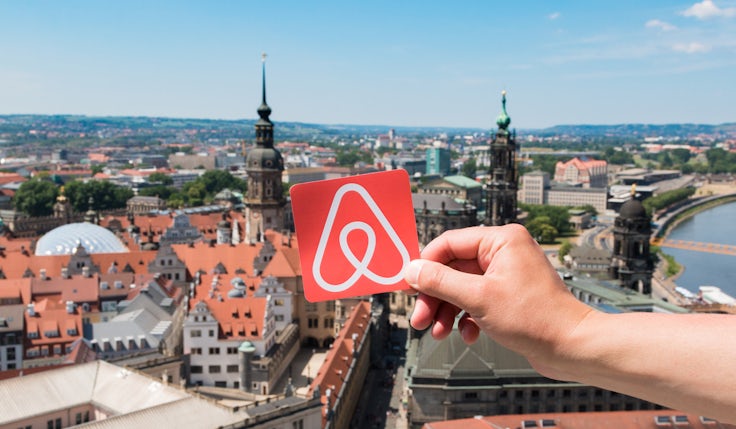Digital skills, streaming, revenue growth: 5 interesting stats to start your week
We arm you with all the numbers you need to tackle the week ahead.
Marketers are under increased pressure to grow revenue
Nearly two-thirds (63%) of marketers say they are under very high or extreme pressure to deliver revenue growth. But 53% say they are only moderately confident they will meet their revenue targets.
Just over half (57%) believe their CEO is only somewhat satisfied with marketing’s performance.
In order to improve the situation, the study by the CMO Council suggests marketers need to close the data literacy gap and make better use of customer intelligence.
The vast majority (85%) have data literacy gaps within their teams, while 79% say they are only moderately successful or worse at using data for customer segmentation.
Three-quarters (75%) are only moderately successful or worse at actioning customer insights, with 73% saying the same for applying data analytics for customer insights.
Source: CMO Council
Brits spend more than 16 hours a week streaming content
 One fifth (19%) of Brits spend more than 16 hours each week watching streaming services, that’s the equivalent of two working days, with 58% claiming they watch more streaming or catch-up content since the onset of the pandemic.
One fifth (19%) of Brits spend more than 16 hours each week watching streaming services, that’s the equivalent of two working days, with 58% claiming they watch more streaming or catch-up content since the onset of the pandemic.
However, 25% aren’t willing to pay for such services. Just 21% of Brits would be willing to spend more than £20 a month on streaming services, a third less than in April 2020. And 48% wouldn’t spend more than £10 on streaming, meaning they are likely to pay for just one such service.
Two-fifths (40%) say they would prefer a partially ad-funded streaming offer if it meant content would cost less. But people expect ads to be delivered seamlessly, with 45% preferring fewer ad breaks and 22% saying they would like to see better targeted advertising.
Source: The Trade Desk
Brands fear backlash from inauthentic portrayals of LGBTQ+ people in ads
 Procter & Gamble is committing more than $1m over three years to drive LGBTQ+ inclusion in marketing and accelerate acceptance.
Procter & Gamble is committing more than $1m over three years to drive LGBTQ+ inclusion in marketing and accelerate acceptance.
As part of this commitment, it conducted a study of 200 senior marketing and advertising professionals in February. The research finds 81% of brands and 41% of agencies agree “an inauthentic execution of LGBTQ+ people and scenarios would lead to a larger backlash than not featuring them in ads at all”.
Furthermore, 61% of brands and 28% of agencies say they are “fearful of public backlash for including LGBTQ+ people in advertising”. Only 33% of brands and 46% of agencies are very likely to recommend using LGBTQ+ people and scenarios in advertising.
However, while fearful of getting representation wrong, 61% of brands and 60% of agencies strongly agree companies that feature LGBTQ+ people and scenarios in advertising are “helping consumers understand and respect” the community.
The findings also reveal agencies are more supportive and accepting of LGBTQ+ inclusion than brands, giving them a strong role to advocate for change. Some 55% of agencies say featuring LGBTQ+ people and scenarios is supported by their top management, compared to just 39% of brands.
Source: P&G
Microsoft tops global list of most conscious brands
 Microsoft has topped a list of the world’s 100 most conscious brands, which is based on how responsive brands are to people’s needs, moods and culture, while also being more ethical, sustainable and prepared to take a stand on moral issues.
Microsoft has topped a list of the world’s 100 most conscious brands, which is based on how responsive brands are to people’s needs, moods and culture, while also being more ethical, sustainable and prepared to take a stand on moral issues.
The tech giant scored highly for Microsoft Teams enabling people to work remotely throughout the pandemic, as well as the fact its technology was used to help people on the front line research Covid. It also donated $1.9bn to non-profits, nearly $4bn to diverse-owned businesses and reduced its supplier carbon footprint by 21 million metric tonnes of CO2e.
Headspace came second for its focus on improving health through meditation and mindfulness, followed by YouTube for using storytelling to educate people on sustainability, Pfizer for its Covid vaccine, Google for using tech to help people do more for the planet, and Netflix for its contribution to culture and diversity.
At the other end of the spectrum, Twitter and Facebook both scored poorly on moral performance, and Deliveroo failed to make the UK top 100, scoring poorly for ‘inspires a sense of community’ and ‘speaks up for what is right and wrong in the world’.
The UK top 100 list is topped by Google, followed by AstraZeneca, Microsoft, the BBC and YouTube.
Source: Hall & Partners/Wolff Olins
UK businesses concerned over digital skills shortage
 More than half of UK businesses are concerned about missing out as a result of digital skills shortages, while 81% of companies think they will need to recruit outside of the UK in the next 12 months to meet current business requirements.
More than half of UK businesses are concerned about missing out as a result of digital skills shortages, while 81% of companies think they will need to recruit outside of the UK in the next 12 months to meet current business requirements.
Just over half (53%) would pay over the odds to acquire the digital skills they need, with data analytics, cybersecurity and programming the top skills identified as a priority over the next 12 months.
Three-quarters (76%) of UK organisations suggest the government should invest further in closing the digital economy skills gaps.
Source: FourthRev







